
Guess the idiom (multilingual)

While on Twitter these days, I came across a resource with the strangest/funniest idioms in different languages and remembered a session during my studies where we had to draw some English idioms; I had so much fun that I thought I could try and do something similar.

Take the picture above for example – what do you see? A wolf’s wide-open mouth. It is an illustration of the Italian saying in bocca al lupo, literally meaning ‘into the wolf’s mouth’. Strangely enough, it is used to wish someone ‘Good luck!’ (before an exam for example). We have the exact same saying (în gura lupului) in Romanian, but it means trouble. I might explore these aspects – similarities and differences – in a different post.
Below you will find some photo sliders to have fun with. I tried to illustrate each idiom very literally. Some will be pretty easy to guess, others more difficult (I hope).
Now, in order to help you a little, I will give you a clue: there are four English idioms, three French ones, two in Spanish and one in Italian.
If you have guessed any of them, leave a comment below, saying the picture number, the idiom in its original language (and which one that is), the literal translation in English and what it actually means. Or any of these. You can also try and work out the meaning from the picture, even if you don’t know the idiom.
To see the full image, slide right. To reveal the answer, slide left.
1
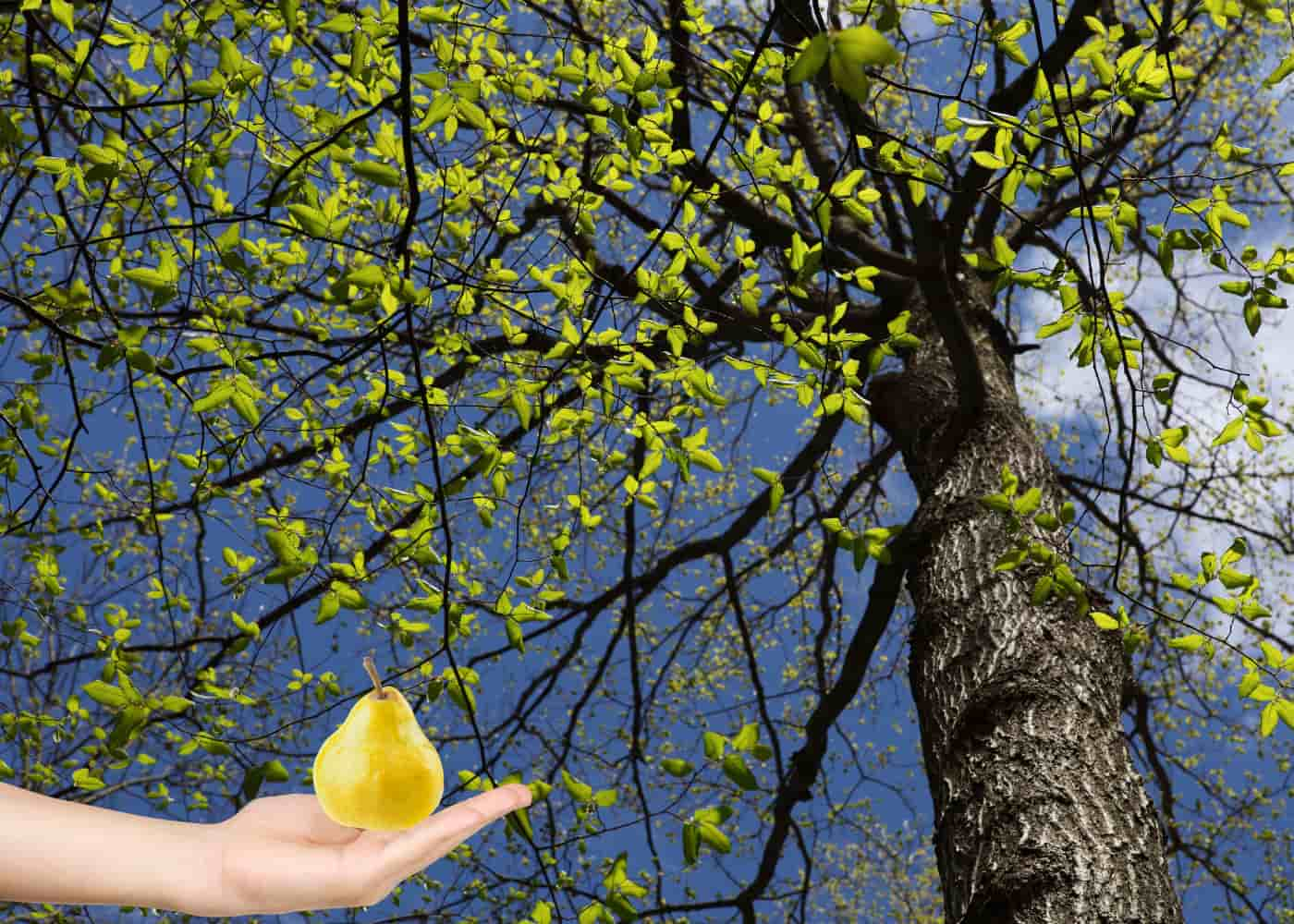
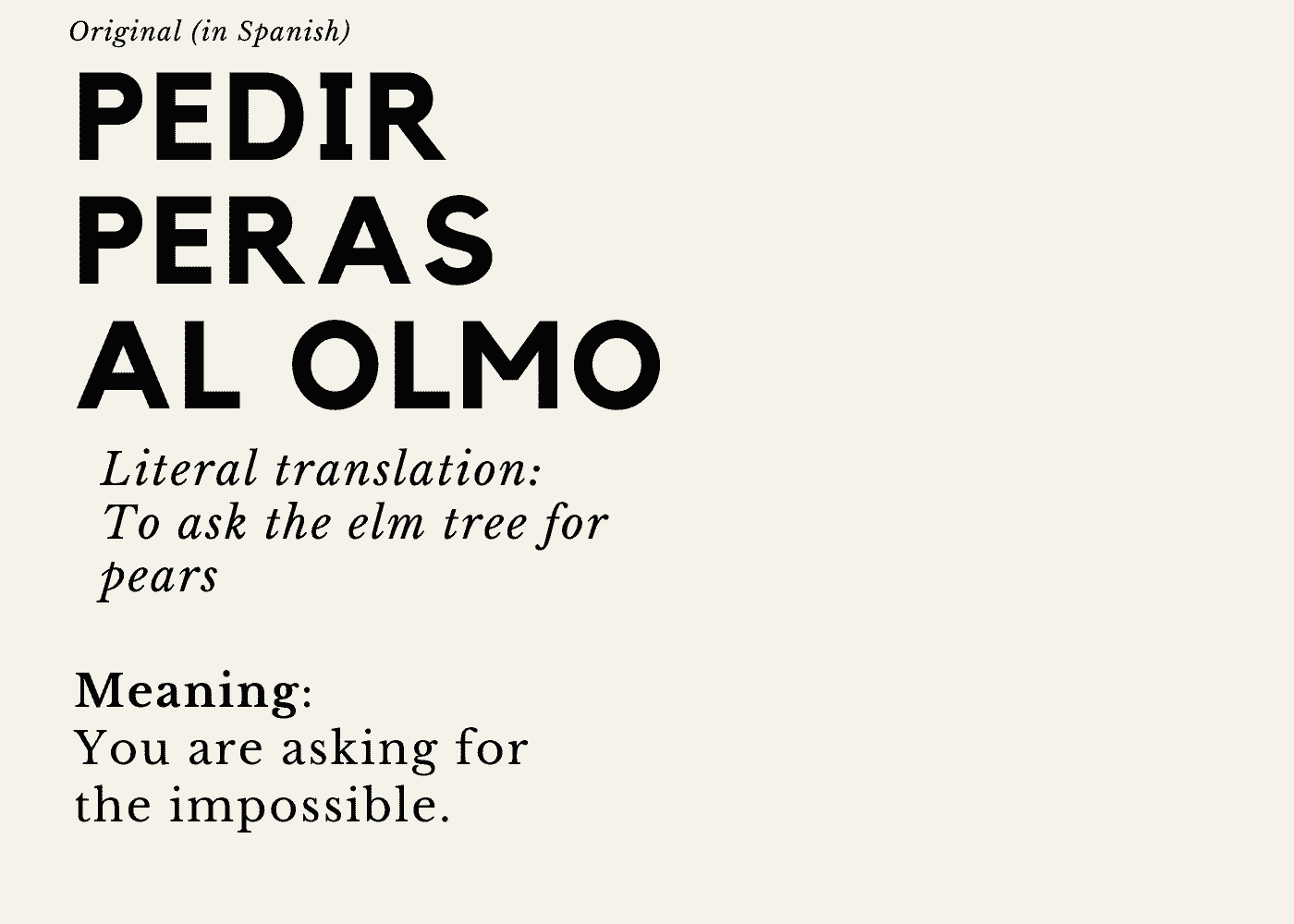
2

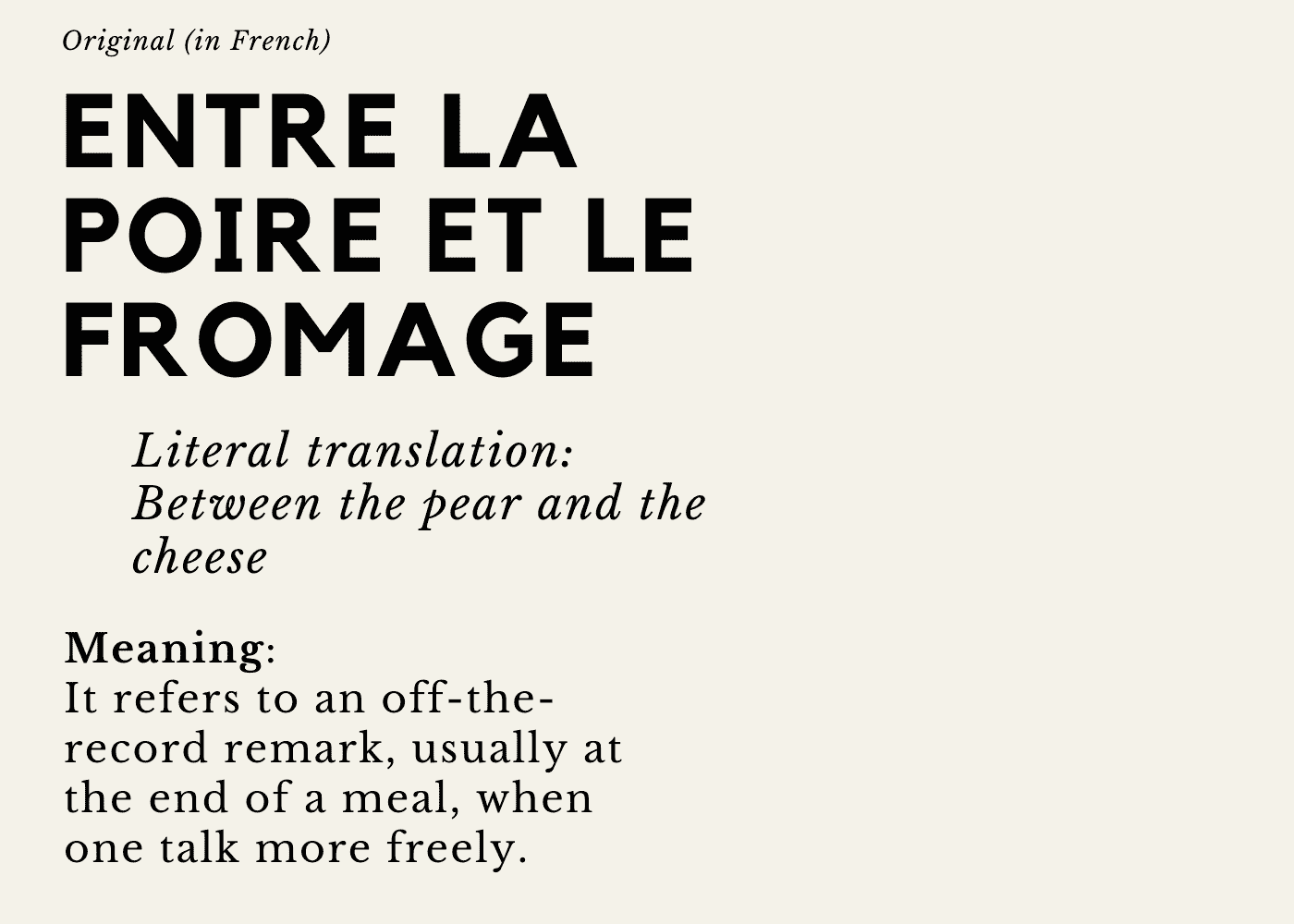
3

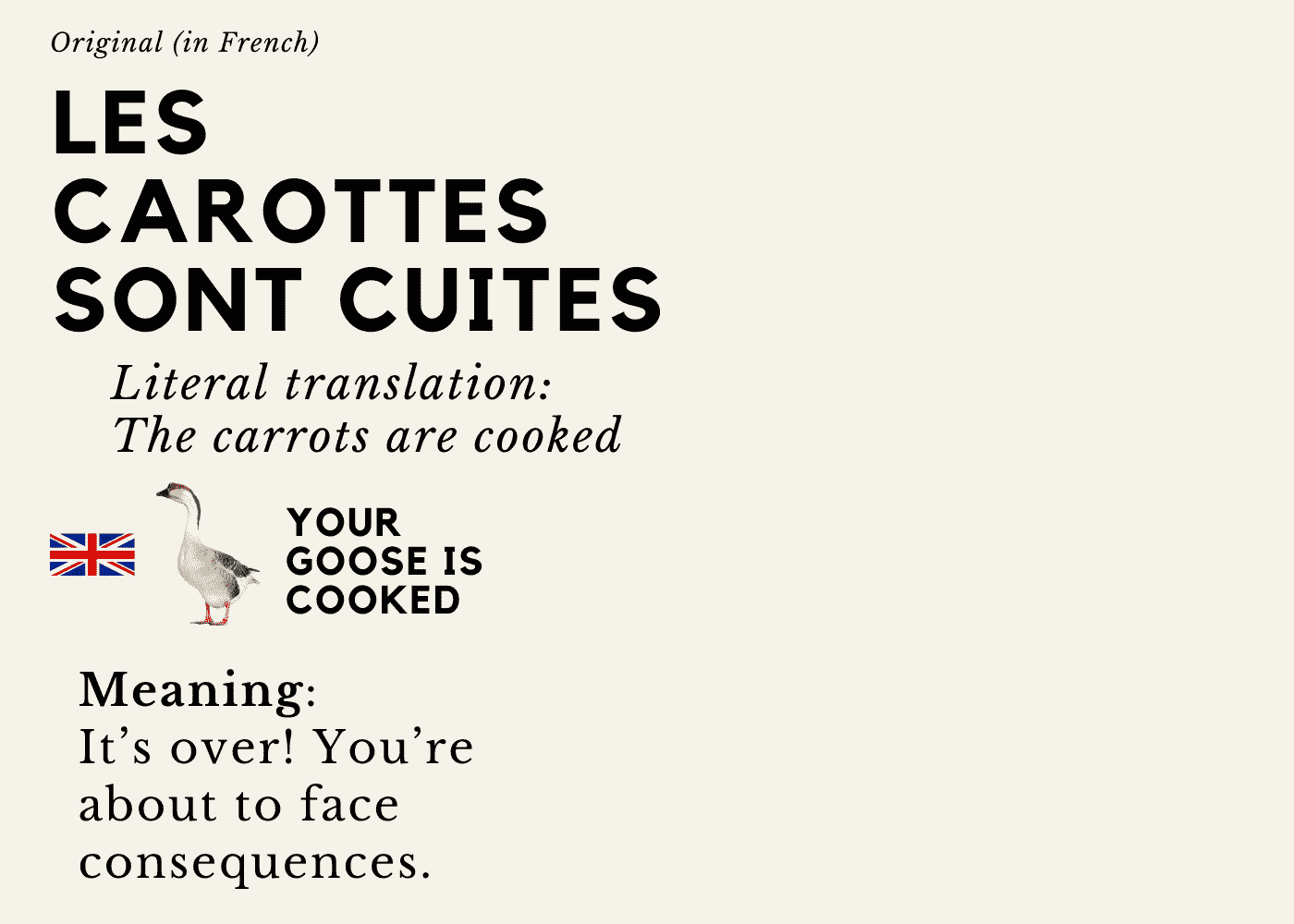
4
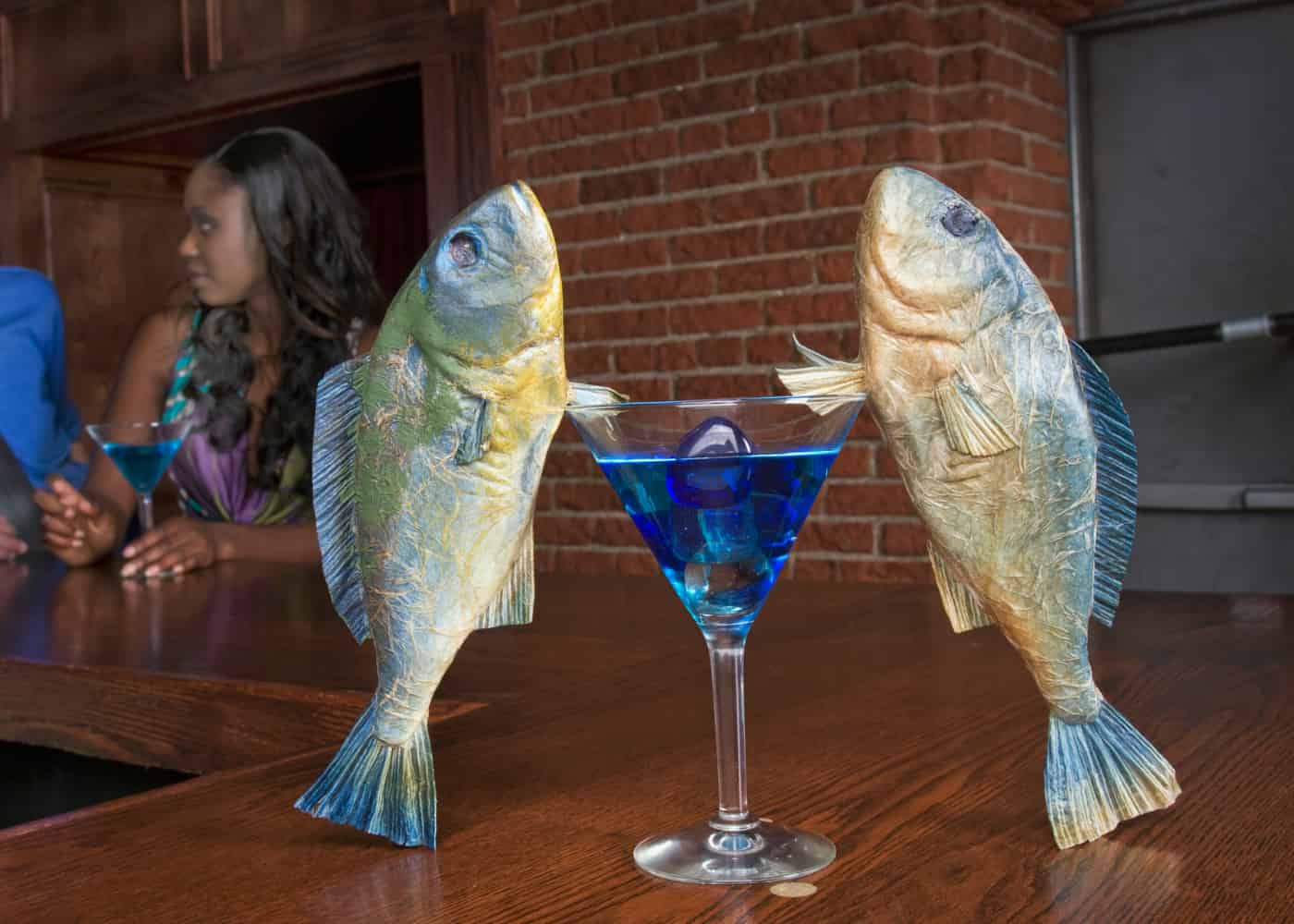
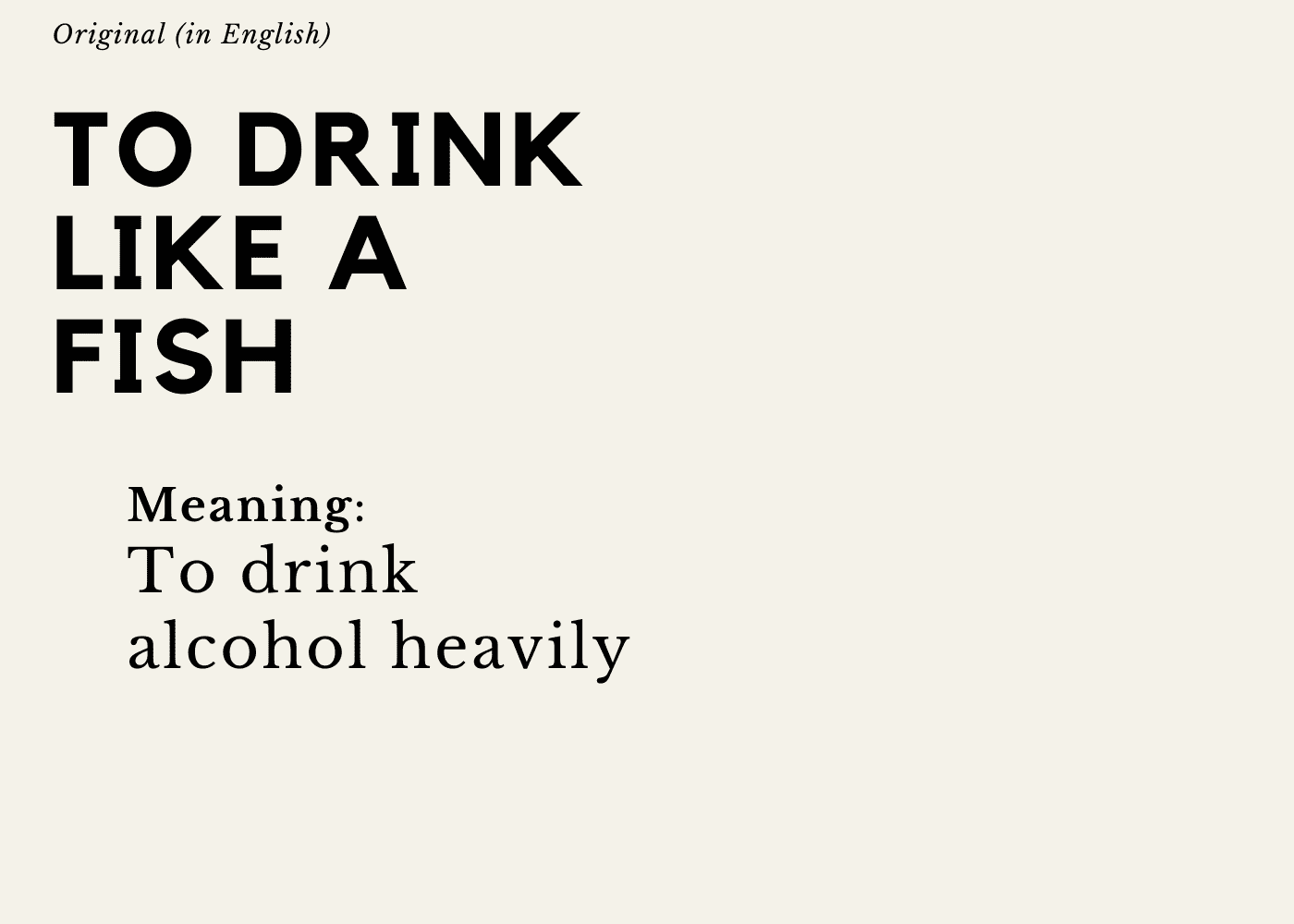
5

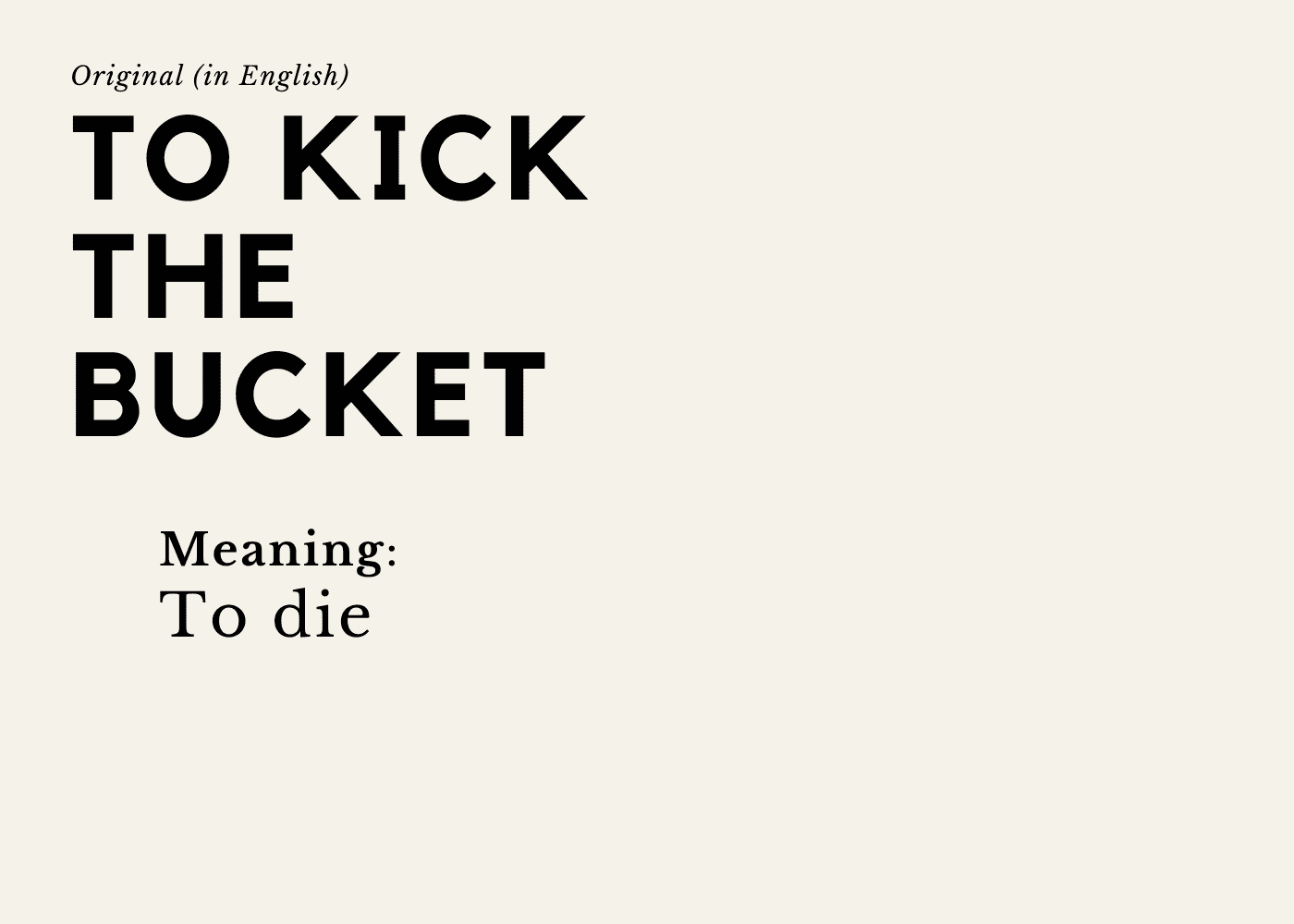
6

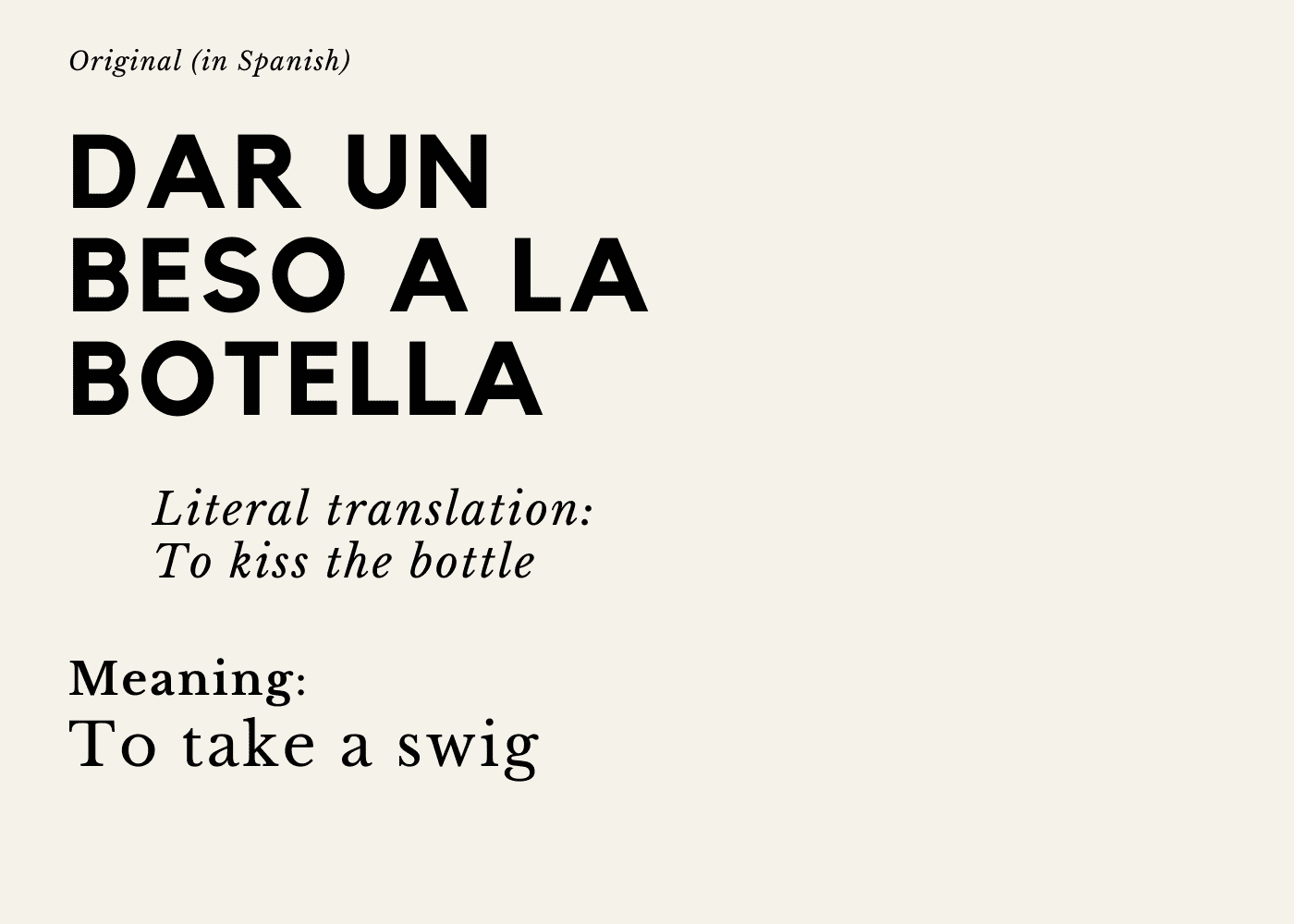
7
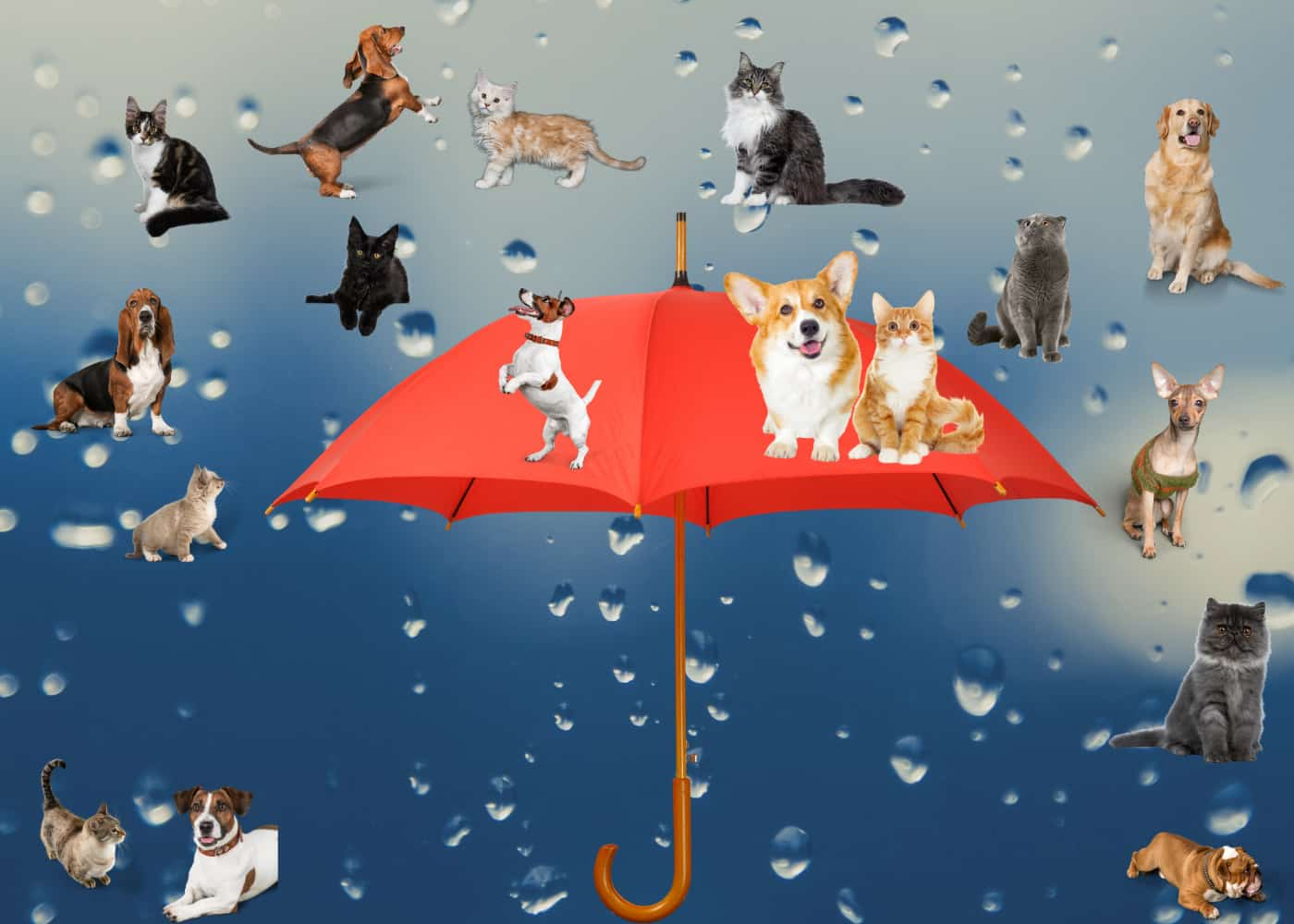
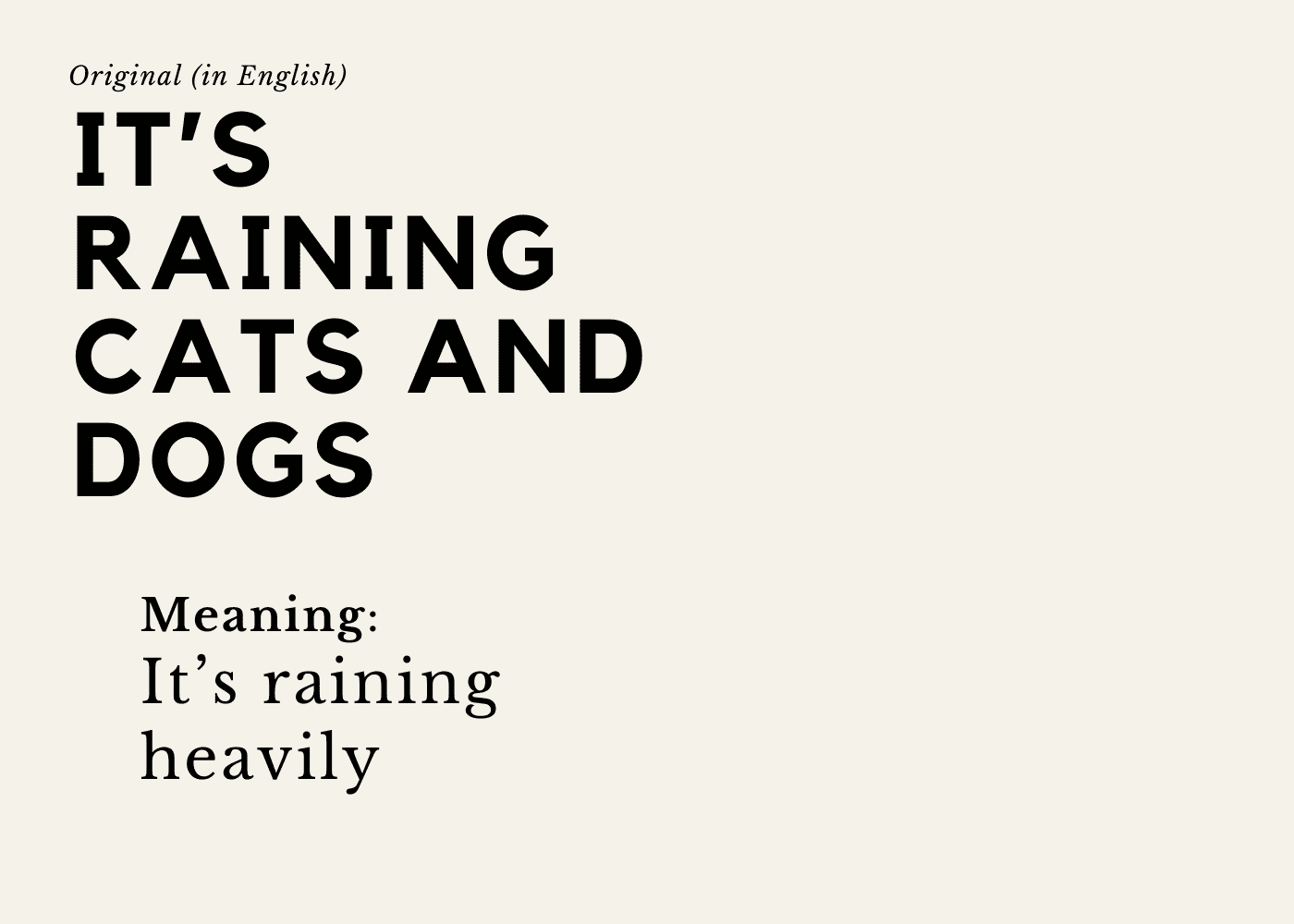
8

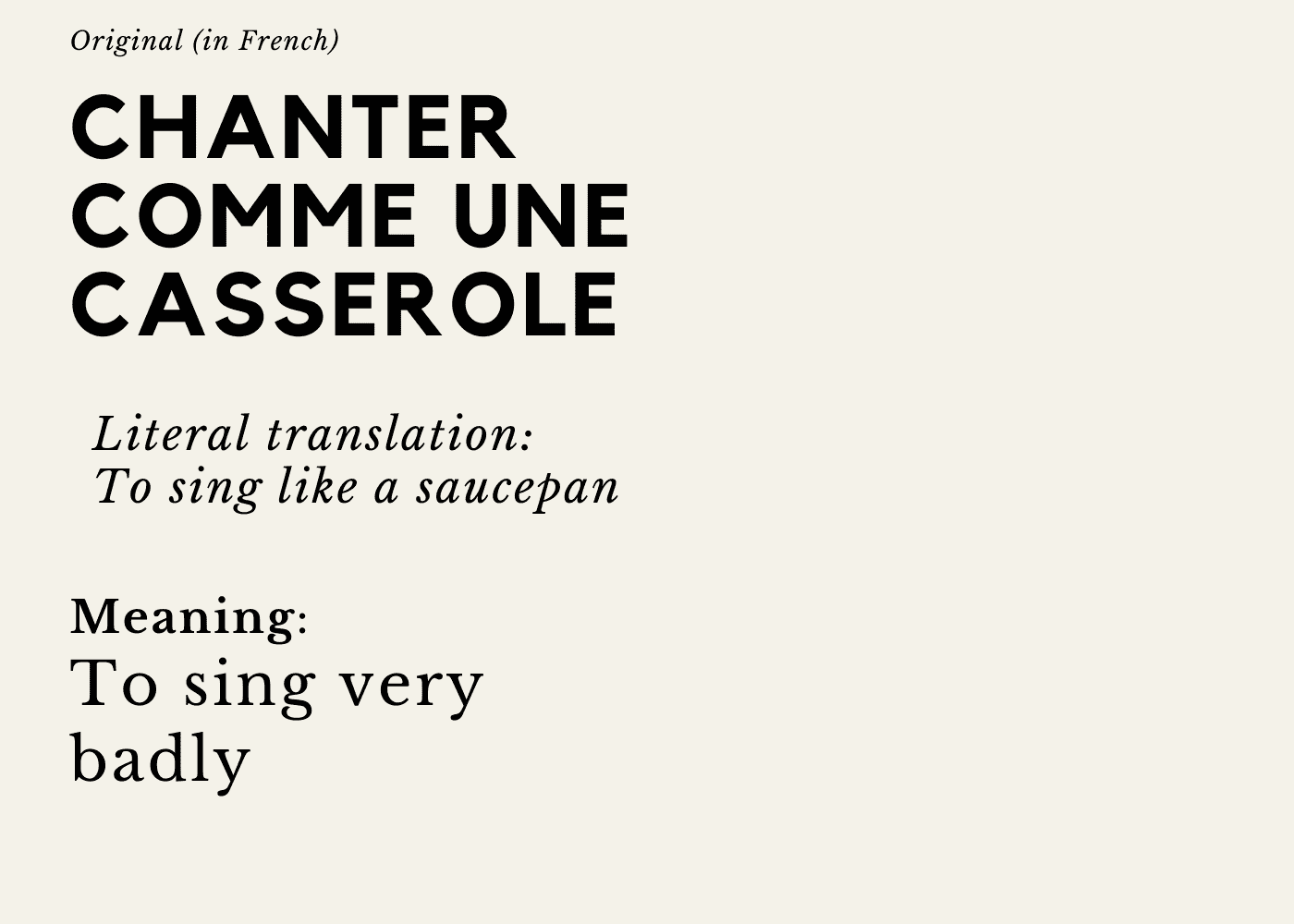
9

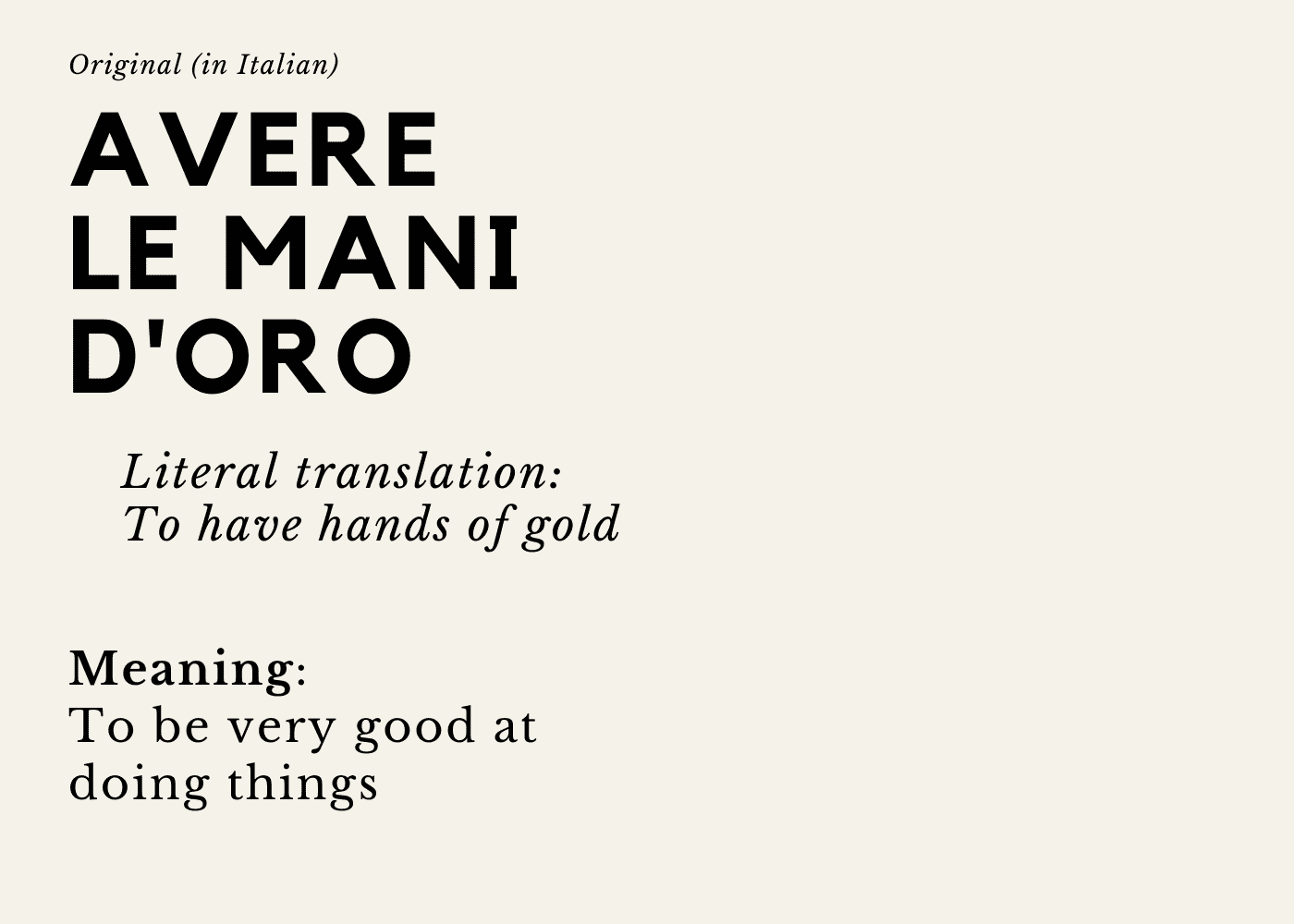
10

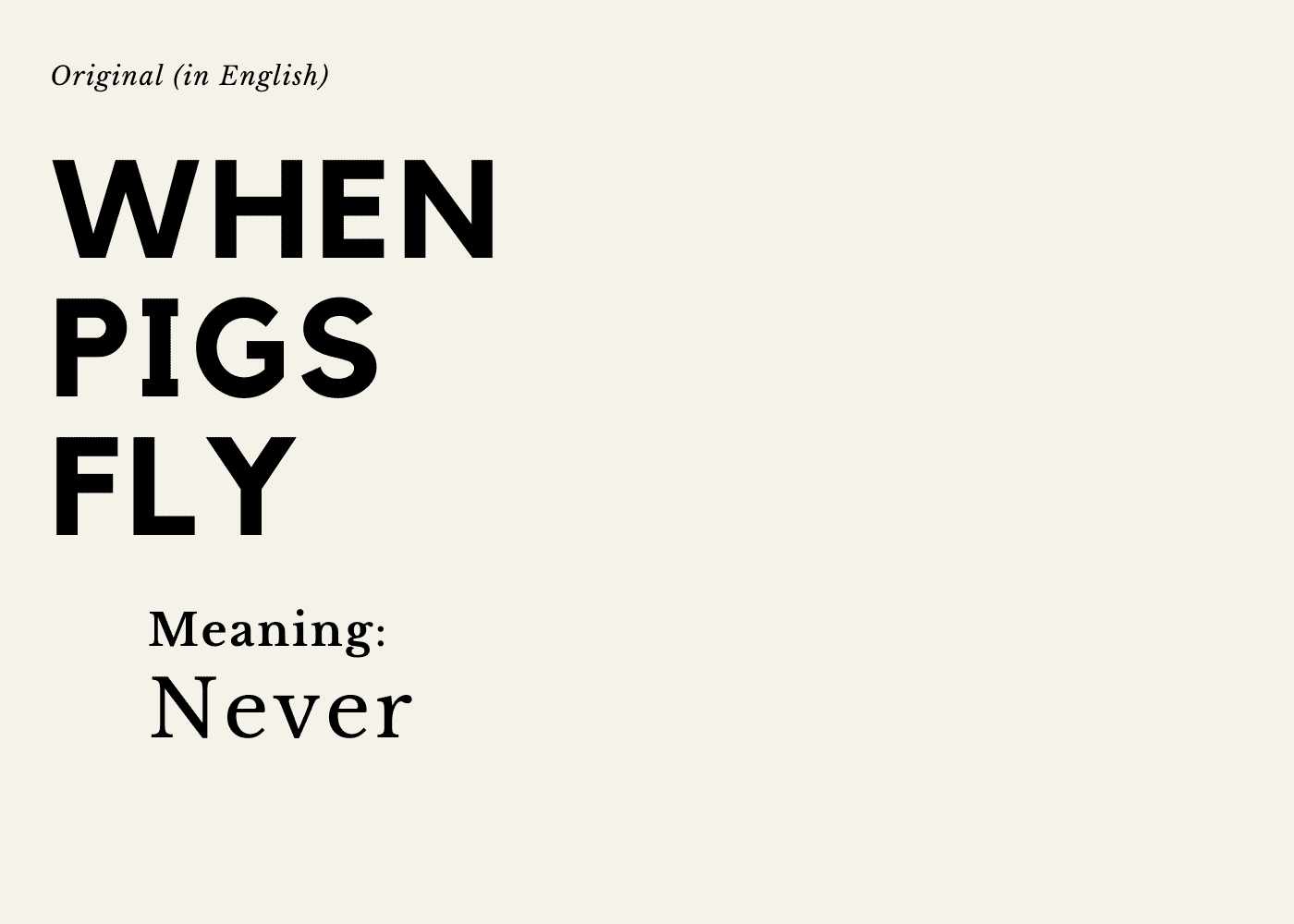
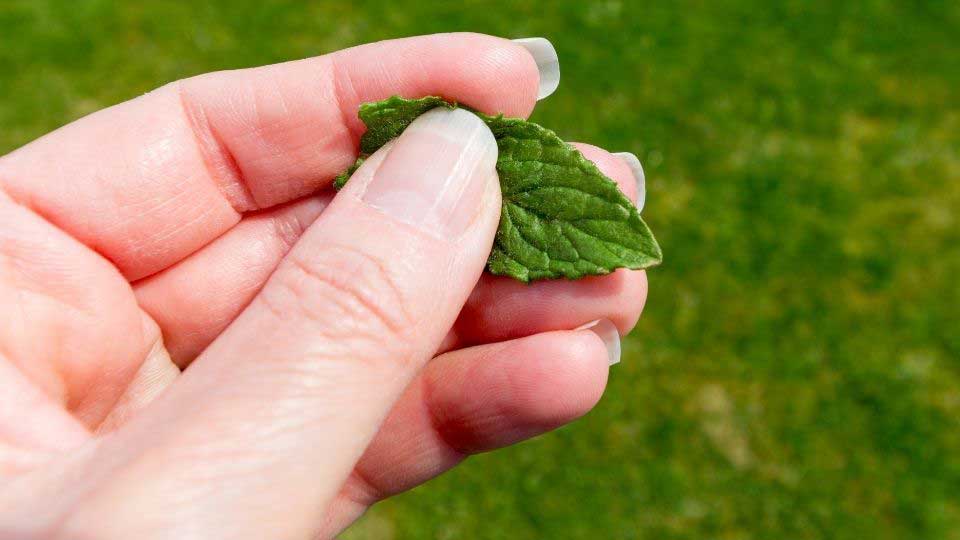


6 Comments
Here’s my guesses:
4. Boire comme un poisson ? (Drink like a fish)
5. Kick the bucket
7. Raining cats and dogs
8. Chanter comme une casserole (Sing very badly).
10. If pigs could fly…
Excellent, Cath! Although I had “drink like a fish” as an English idiom. Interesting to find out it is used in French as well. It will help me prepare my next post – comparing these idioms to see if they exist in other languages and if they have the same meaning.
“Chanter comme une casserole” is by far my favourite one. Could it be because it applies to me? Besides, it is such a funny expression, isn’t it?
I’ve never heard “boire comme un poisson” in French, we’d rather say “boire comme un trou” (literally “drink like a hole”, with the idea of a bottomless pit, I guess, or maybe a black hole).
I’m afraid I only guessed 7, 8 and 10.
No. 7’s idiomatic French equivalent would be “il pleut des cordes”, literally “it’s raining ropes”.
No. 8, a French idiom Catharine already found, literally translates as “to sing like a saucepan”.
As for no. 10, I thought of the idiom “when pigs fly” – in French, “quand les poules auront des dents” (“when hens have teeth”) – meaning “when hell freezes over”.
There’s also “if pigs had wings, they would fly” which I think translates as “avec des ‘si’, on mettrait Paris en bouteille” (literally, “with ‘if’s, we’d put Paris in a bottle”).
However, we do have an idiom that literally means “into the wolf’s mouth”: “dans la gueule du loup”, which must be closer to the Romanian saying you alluded to, as it means “in the lion’s mouth”. “se jeter dans la gueule du loup” = “putting one’s head in the lion’s mouth”.
I’m curious about the other idioms; I hope the right answers will soon be found!
Nice illustrations, by the way! They’re clean and cute 🙂
Thank you for your comment, Gwen, and for the great insights. This will definitely help me with the post on similarities/differences in various languages. And thank you for the feedback on the illustrations. 🙂 Answers will be posted in a different article if no one guesses all of them. Or maybe I should give some more clues?
Wait! Isn’t no. 3 “les carottes sont cuites”?
There seems to be many English equivalents! https://forum.wordreference.com/showthread.php?t=459418
Oui, c’est ça! Très bien, Gwen! That was one of the idioms I thought no one would guess, as my carrots don’t seem to be cooked 🙂